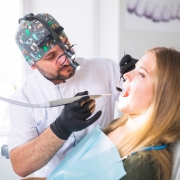Why a One-on-One Experience Matters in Oral Healthcare
When you read up on dentistry, you’ll learn a lot of general information about how different services work and what to expect when you make an appointment. This can create some confusion for people because, eventually, every practice may start to look the same.
Of course, not every practice will offer the same care. Here, we’ll look at why this makes a one-on-one experience in Jacksonville valuable when it comes to maintaining and improving your oral health.
A Personal Touch
There’s a reason why people rely on first-hand reviews from former customers or clients of different businesses: because they’re generally more trustworthy than the brand’s marketing copy. When it comes to finding a dentist, you should look for a professional who knows how to apply their training to your individual issues.
Whether you have unexplained pain, extreme tooth sensitivity, or a family history of gum diseases, a dentist who offers a one-on-one experience will do more than make you fill out a few standard forms. They’ll take the time to listen to you, so they’re less likely to miss an important detail. Plus, if you stick with them over time, they’ll have a more comprehensive understanding of how your teeth and gums change over time, and what you can do to prevent bigger issues down the road.
Finding the Right Dentist for You
At Dr. Matt Henry, we know that it’s not always easy to settle on a healthcare practitioner, especially if you’ve been wronged in the past. While no team is perfect, though, you can find people who will work with you — no matter how small your requests are. To learn more about our services and how our dentists in Jacksonville, FL approach your care, contact us today to see what a true one-on-one experience really means!










